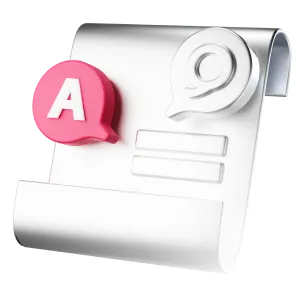If you need to replace an ignition coil, you can expect to pay between $91.50 and $862. This includes $50 to $600 for parts and $41.50 to $262 for labor. The wide range comes down to these factors:
- Type of ignition coil your vehicle uses
- Number of ignition coils that need replacing
- Labor costs
How much does it cost to get ignition coils replaced?
The typical cost of an ignition coil varies, from about $50 to $600 each, depending on the type of coil. Most cars have one of three types of ignition coil: conventional, coil-on-plug, or distributorless ignition system coils. The latter two are more expensive, costing around $200 to $600 per coil, while a conventional coil costs only $100 to $300.
Let’s take a look at sample prices for ignition coils:
| Name | Is this a set? | Price ($) |
|---|---|---|
| PerTronix Flame Thrower Coil for F-150 3.5L EcoBoost | Yes, of five | 299.95 |
| Ford Hi-Energy Ignition Coils for F-150 5.0L V8 | Yes, of eight | 625.00 |
| Honda Ignition Coil for 2006-2011 Honda Civic | No, single item | 153.19 |
| Honda Ignition Coil for 2015-2020 Honda Fit and 2016-2021 Honda Civic | No, single item | 66.00 |
Should I replace all ignition coils at once?
Vehicles typically use one coil for every one or two cylinders, meaning you could have up to eight ignition coils on a V8 truck while only four on a passenger sedan with a four-cylinder engine. Some older cars have distributors which allow one coil to fire multiple spark plugs.
Theoretically, you can just change the bad ignition coil(s) and be on your way, but there’s an argument for changing all of them. The idea is that if one went bad, the others might need to be replaced soon as well. However, this will cost more, and it might be overkill.
Labor costs when replacing ignition coils
It typically takes a mechanic half an hour to two hours to replace an ignition coil, depending on the complexity of your vehicle. According to Statista, mechanics’ per-hour rates across the United States in 2020 ranged from $83 per hour for independent workshops, to $98 for network workshops, and $131 for dealerships. Based on those estimates, you could expect to pay between $41.50 (half an hour at $83 per hour) and $262 (two hours at $131 per hour) for labor.
What does an ignition coil do?
Ignition coils step up the voltage created by a car’s battery to a higher voltage that can power the spark plugs. A car is typically powered by a 12-volt battery, but a spark plug needs at least 20,000 volts to create a spark. From there, the spark plugs ignite the fuel-air mixture, creating combustion.
What are the symptoms of a failing ignition coil?
A failing ignition coil will struggle to create sparks in its cylinder. This could lead to noticeable engine issues, such as a reluctance to start or low engine power. You might also notice your engine misfiring, and your check engine light might illuminate. A mechanic can determine whether the problem is coming from an ignition coil.

Xuyun Zeng is a writer and editor with a wide-ranging content background including tech, journalism, cars and health care. After graduating with highest honors in journalism, Xuyun led a newspaper to win eight awards, helped start an award-winning film industry podcast and has written over a hundred articles about cars repair, state laws and insurance. Prior to joining Jerry, Xuyun worked as a freelance SEO consultant with a mission to create the best content that will help readers and grow organic traffic.

Alice Holbrook is an editor with more than a decade of experience covering personal finance, including car insurance. She\\\’s passionate about creating easy-to-understand content that demystifies intimidating topics for readers. Previously, she worked for NerdWallet, and her work has been featured by Newsweek, The Washington Post and the Associated Press, among others.








